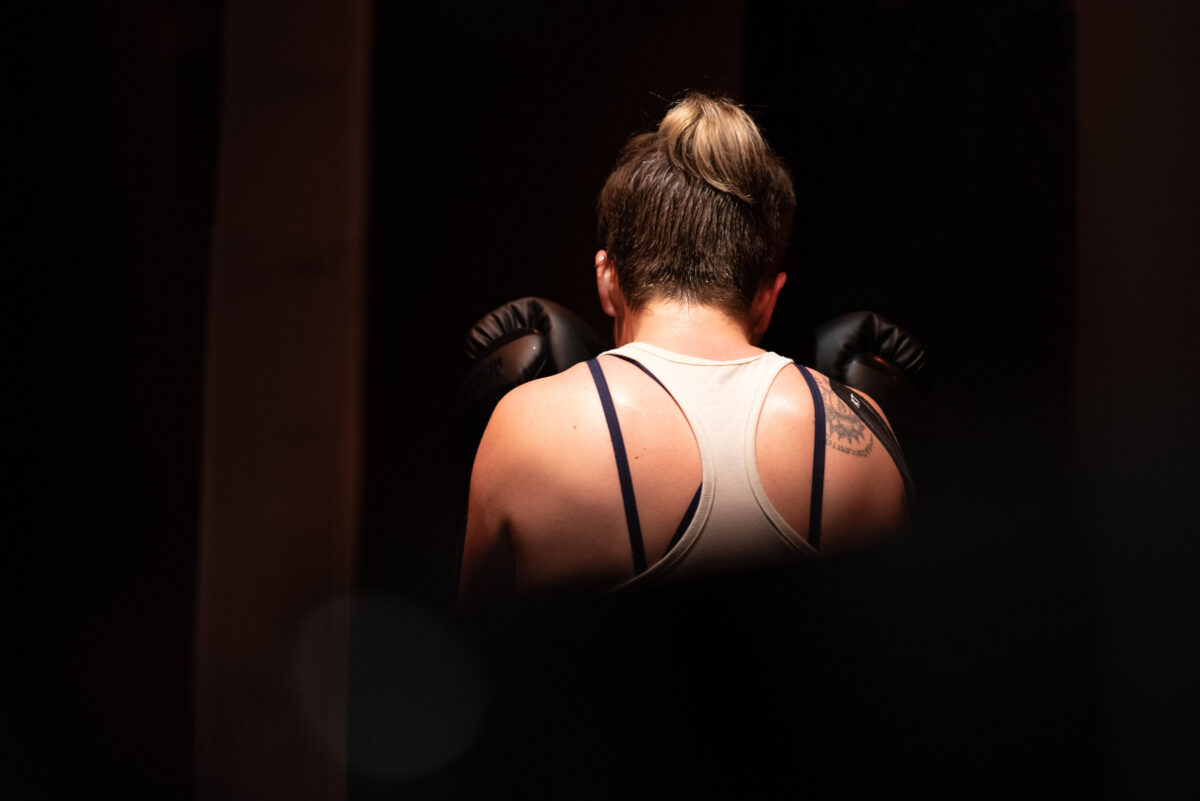Breaking Up The Band
I’m breaking up the band.
For thirty days, five library books sat piled on my bedroom dresser. They were chosen by me, checked out weeks before the pandemic gripped the world and my life. I’ve never been angered by books before, angered at their existence, angered at their residency in my house. They sat there mocking me, silly reminders of my pre-pandemic life. The man who checked out these books was from a different time, a different world. For the first 30 days of the pandemic, I was obsessed with science fiction. Anything I read or watched had to be about outlandish, bizarre places. I was particularly drawn to any stories of a person experiencing parallel realities, or altered timelines. For much of April, I felt like I didn’t belong in this world. I had been both misplaced and displaced. All of my basic understandings of the world had been dashed, and these damn books just sat there, taking up space. Piled together, they were about the size of a large box of kleenex. Like me, they had been thrown out of an established continuum, and were now locked in this new reality with me.
Libraries were closed, I was ordered not to return them. Burn them? Tempting.
I didn’t. Eventually I read them. I’m putting on record that the order I’m experiencing these books is worth noting. I’m marking this feeling now, because I’m breaking up the band. I’m returning some of the books to the library, and checking out new ones.
Completed before the Pandemic:
Perennial Seller: The Art of Making and Marketing Work That Lasts, by Ryan Holiday
This was the only book by Ryan Holiday readily available from a nearby library. Earlier in the year I’d stumbled across one of his blog posts about stoicism, and I was eager to read one of his books. I’d been struggling at my job with how quickly we seemed to turn over material in our band. Why did some pieces seem to outlast others? Was there a piece of that formula that could be explained to me? I was also trying to find motivation to write my own book, create my own music, and start my own band in Kansas City. In retrospect, the early parts of the book about creativity have aged well in the pandemic. The last part about marketing has not. Holiday’s first book was a tell-all about insider-secrets of the American advertising industry, and the pandemic has turned industries upside down, or eliminated them entirely. Some of the advice in this book was relevant in February 2020, and was rendered stunningly stupid.
Begun before the pandemic, paused, and now completed:
The Infinite Game, by Simon Sinek
This book probably angered me the most, because I was so excited to read it and channel the ideas to my band, but instead then I had to swallow the ideas myself. I can encapsulate thusly: There are finite games and infinite games. In finite games, there is a clear winner and loser. By contrast, infinite games have no winners or losers. Players can come into the game and leave the game at anytime. In infinite games, you can’t control the rules. You can only control how you play.
For years at my job, I’ve imparted a variation of this philosophy to the people who work for me. Don’t get too attached to how we operate here. Don’t get too stuck in believing that this defines a career in music. Be prepared to port skills here to other bands, venues, and formats.
Guess what? The pandemic hit, and we were all laid-off, and live music in this country has been redefined forever. The modern music industry was already a strange mutation leftover from post WWII prosperity and technological growth. Now it’s unrecognizable, and anybody who had a “get-rich-quick” mindset to the performing arts is jockeying for viral fame on Tik-Tok. I have no choice but to redefine my place in the worl as professional creative, and how important that is in the new landscape. I hated this book for how prescient it was. I hated taking such a strong dose of my own medicine.
Completed during the Pandemic:
The War of Art: Break Through the Blocks and Win Your Inner Creative Battles, by Stephen Pressfield
I credit this book with pulling me out of a funk. I’d read one of Pressfield’s other books, Turning Pro, two years ago. Pressfield’s chapters are brief, deft, and styled in a way to not intimidate the reader, even as the subject matter forces me to confront my resistance to creating art.
This was the first book I chose to read during the pandemic. It didn’t demand much concentration. It demanded reflection.
For a few weeks in April, I’d jog after my kids as they rode their scooters to a nearby creek. With playgrounds closed, they found joy in playing by creeks. They throw rocks, observe plants, create small forts from sticks, marvel at animal tracks. I’d sit on a rock and read this book that I’d carried as I ran. It was about resistance. Resistance is ever present for artists. The book asked me if I’d succumb to it, or figure out how to keep it at bay. This book helped me form an inner permission structure to take in new art and ideas. I was less angry when I read it. I began to release my resentment of the world, and contemplate how I could get back to creating something.
Completed during the Pandemic (but previously read three years go):
The Art of War, by Sun Tzu, this latest translation by Michael Nylan (notably first published translation by a woman)
I noticed myself with strange habits when I read this book. I felt drawn to thinking of my band. They were my troops. I loved being their leader, even when it was difficult. I took so much pride in my job; I took it so seriously. This is not my wisdom, but if I man walks into the woods and others follow him, we say he’s a great leader, but if a man walks into the woods and nobody follows him, we say he’s going for a walk.
So instead I just tried to go for a walk while I read this book, systemically putting down my desires to lead a band into battle with an unruly, skeptical audience. I realized that my children were my new troops. My family was my band now. The lessons about command resonated with my challenges of being a parent. I thought about it, and wrote about it.
Unfinished:
A mystery book. 🙂
What this all does is ask me to re-evaluate my priorities. I’d begun to tell myself that my musical legacy would be left by the people I mentored. In the wake of the upheaval in the country over unbearable racism, I think about my children. I think about how critical it is that Brooke and I raise them with the right set of values. We think about our children’s sense of humanity and how to shape it. That seems so much more urgent then lessons about being a professional musician. As I re-attune my priorities, my definition of success changes, including my desire for success. The events of the world bring my focus to my immediate community, and how I can affect change. I spend more days thinking about I can actually control, and that’s fairly limited to the walls of my home. I can control my interactions with my family. I want to reposition my confidence, away from my worth as a professional musician, and closer to my family. Will this mean less discretionary income and less professional opportunities? Maybe. Will I be out doing less things? Will I see less people? Will I gain deeper bonds with my family by sacrificing a dated set of values?
I’m breaking up the band.
I already returned The Art of War and The Infinite Game to Missouri. I’ll return The War of Art, Perennial Seller this week, back to Kansas. I’ll finish Why Good Sex Matters soon.
Thank you, books. You were here for a reason. It’s time for you to move on, and take your ideas to somebody else. I’ve taken my notes. You don’t want to be here anymore. I don’t want to look at you. The space on my dresser will be occupied by a different pile. The moment has passed.



